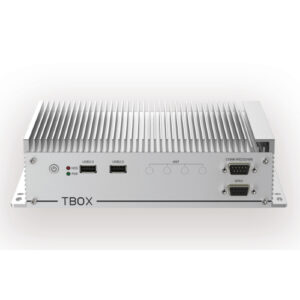In today’s competitive automotive industry, ensuring the quality and integrity of every vehicle that rolls off the assembly line is non-negotiable. To meet growing demands for precision, safety, and efficiency, manufacturers are increasingly turning to full traceability systems powered by RFID and SCADA technologies. These systems allow for comprehensive monitoring of each component—from the moment it enters production to the point the finished product is delivered.
What Is Full Traceability?
Full traceability in automotive production refers to the continuous tracking of all components throughout the entire manufacturing cycle. Every step, every material, and every process is recorded and accessible, enabling manufacturers to pinpoint issues, ensure quality, and comply with industry regulations.
How It Works: Step-by-Step Breakdown
1. Component Identification
The traceability process begins the moment raw materials and components enter the production line. Each pallet is equipped with RFID tags such as the F9525, enabling quick and precise identification. Individual parts—whether metal or plastic—are tagged with models like the ML8343, ensuring unique tracking for every item.
These tags are read by devices like the S4-8080-04, which use TCP/IP protocol to communicate key data such as serial number, specifications, and production date. This ensures each component is digitally logged and can be traced back at any point.
2. Real-Time Monitoring
Throughout the assembly line, RFID antennas like the 719-0909-09C detect and transmit tag information as components move through the system. These readings are funneled through centralized readers (such as the S4-8080-04), which communicate with a SCADA system over a TCP/IP network. This live feed of data allows real-time supervision of component flow and system performance.
3. SCADA Software Integration
All collected data is visualized and managed through advanced SCADA platforms like the IGU-FvRT-1500-L016-B. This software provides operators with a complete overview of the production line, complete with alarms, performance dashboards, and historical logs. If any discrepancy arises, the system immediately notifies the team for corrective action.
4. Finished Product Tracking
After assembly, the vehicle itself is scanned using long-range RFID readers such as the SPR/A18-8080-12C, which includes an integrated antenna. This final scan consolidates the data of every component used in the build, tying it to the unique vehicle identifier. This ensures that, even post-sale, manufacturers can trace every element used in the vehicle’s construction.
5. Data Storage and Analysis 
All production information is stored in centralized units like the TBOX-2T05, supporting long-term data retention. This not only facilitates future audits and warranty claims but also enables analytics for process improvement and predictive maintenance.
Key Advantages of Full Traceability
-
Full Transparency: Gain a 360-degree view of your entire production process.
-
Improved Quality Control: Detect and correct issues in real-time before they become costly problems.
-
Enhanced Operational Efficiency: Streamline processes through intelligent monitoring and automation.
-
Regulatory Compliance: Simplify documentation and reporting for quality and safety audits.
-
Robust Warranty Support: Trace any defect back to its root cause with complete historical records.
Transforming Automotive Manufacturing with Smart Technology
By integrating RFID identification systems and SCADA software into the production line, manufacturers are not only improving their quality control but also building smarter, more resilient operations. Total traceability isn’t just a trend—it’s becoming a necessity in modern automotive production.
At Logicbus, we provide cutting-edge traceability solutions tailored to your industrial needs. Contact us today to learn how you can implement a smarter, more transparent production system.
sales@logicbus.com | support@logicbus.com | +1 619 616 7350 | Start conversation






